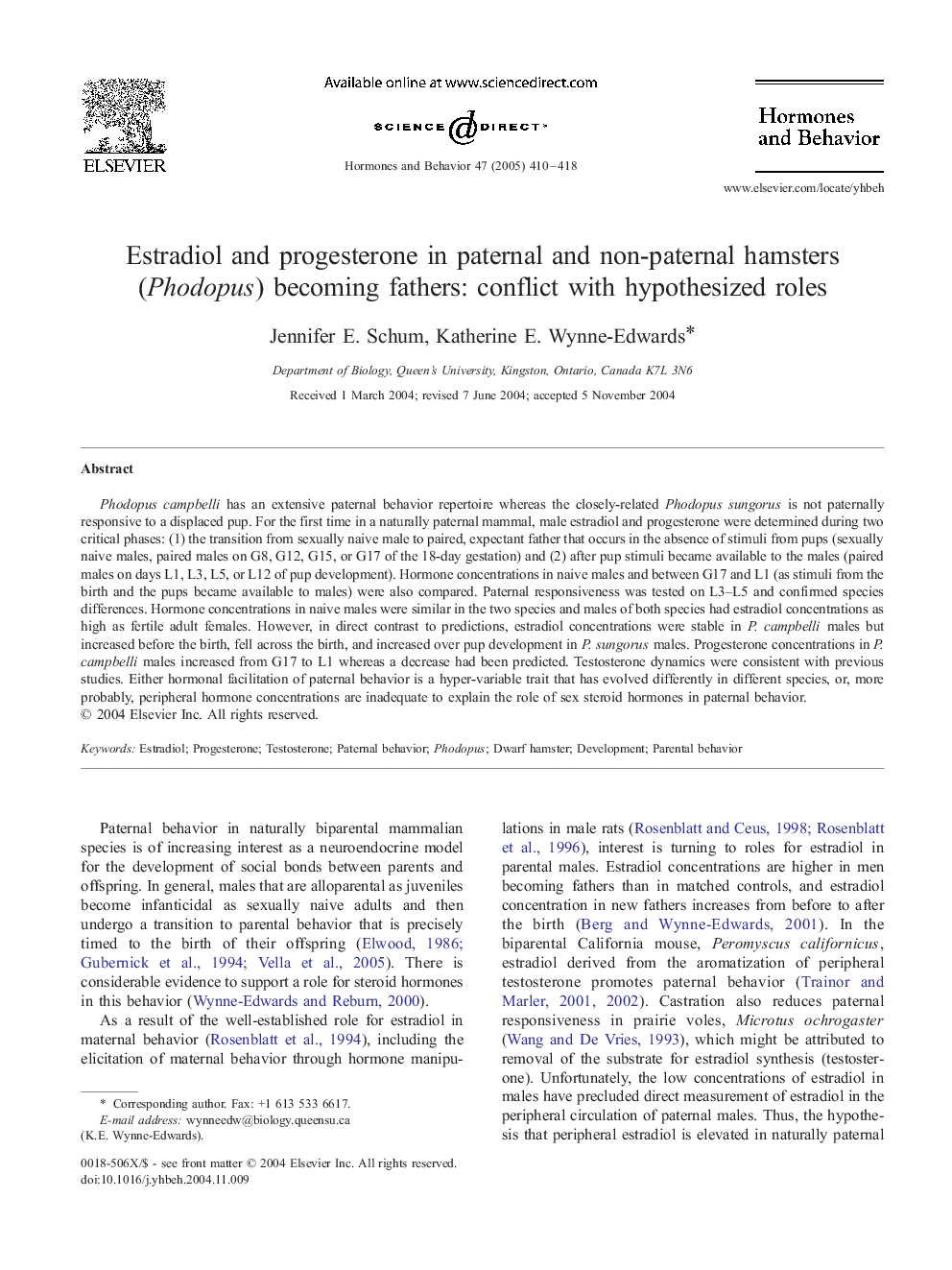| کد مقاله | کد نشریه | سال انتشار | مقاله انگلیسی | نسخه تمام متن |
|---|---|---|---|---|
| 10301181 | 540721 | 2005 | 9 صفحه PDF | دانلود رایگان |
عنوان انگلیسی مقاله ISI
Estradiol and progesterone in paternal and non-paternal hamsters (Phodopus) becoming fathers: conflict with hypothesized roles
دانلود مقاله + سفارش ترجمه
دانلود مقاله ISI انگلیسی
رایگان برای ایرانیان
کلمات کلیدی
موضوعات مرتبط
علوم زیستی و بیوفناوری
بیوشیمی، ژنتیک و زیست شناسی مولکولی
علوم غدد
پیش نمایش صفحه اول مقاله

چکیده انگلیسی
Phodopus campbelli has an extensive paternal behavior repertoire whereas the closely-related Phodopus sungorus is not paternally responsive to a displaced pup. For the first time in a naturally paternal mammal, male estradiol and progesterone were determined during two critical phases: (1) the transition from sexually naive male to paired, expectant father that occurs in the absence of stimuli from pups (sexually naive males, paired males on G8, G12, G15, or G17 of the 18-day gestation) and (2) after pup stimuli became available to the males (paired males on days L1, L3, L5, or L12 of pup development). Hormone concentrations in naive males and between G17 and L1 (as stimuli from the birth and the pups became available to males) were also compared. Paternal responsiveness was tested on L3-L5 and confirmed species differences. Hormone concentrations in naive males were similar in the two species and males of both species had estradiol concentrations as high as fertile adult females. However, in direct contrast to predictions, estradiol concentrations were stable in P. campbelli males but increased before the birth, fell across the birth, and increased over pup development in P. sungorus males. Progesterone concentrations in P. campbelli males increased from G17 to L1 whereas a decrease had been predicted. Testosterone dynamics were consistent with previous studies. Either hormonal facilitation of paternal behavior is a hyper-variable trait that has evolved differently in different species, or, more probably, peripheral hormone concentrations are inadequate to explain the role of sex steroid hormones in paternal behavior.
ناشر
Database: Elsevier - ScienceDirect (ساینس دایرکت)
Journal: Hormones and Behavior - Volume 47, Issue 4, April 2005, Pages 410-418
Journal: Hormones and Behavior - Volume 47, Issue 4, April 2005, Pages 410-418
نویسندگان
Jennifer E. Schum, Katherine E. Wynne-Edwards,